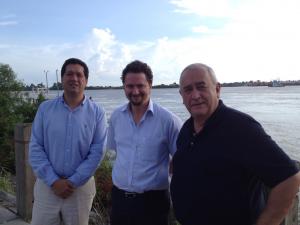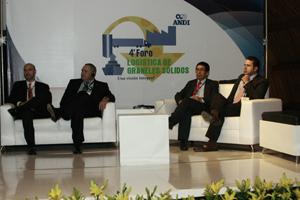Colombia is the only South American country with ports on both the Atlantic and Pacific oceans, but it suffers from significant transportation challenges – poorly maintained roads, under developed river systems and a limited railroad infrastructure. All of which presents significant challenges to moving grain from the ports to the interior of the country, where they are consumed.
For example, a bushel of corn could be moved about 2,000 miles from New Orleans to a port in Colombia for the same cost to move the same bushel roughly 400 miles within Colombia, from Cartagena to Bogota. As the second-largest corn importer in the Latin American region, it is vital to modernize their infrastructure and facilitate the movement of grain.
The U.S. Grains Council has been engaged in this issue for more than 15 years. Last month, the Council sponsored Mike Toohey, president of the Water Way Council, to be the keynote speaker at the Colombian Business Chamber’s 4th Annual Forum on Bulk Transportation. The goal of the conference is for Colombian feed grain importers and government officials to find long term solutions to upgrade Colombia’s bulk gain transportation system and benefit Colombian customers. Giving the Colombians examples of how the U.S. grain industry has benefited from an efficient river transportation system, Toohey explained how modernization is key to the United States maintaining competitive advantage in the global marketplace.
This forum is an example of how a Council initiated study in the late 1990’s has been adopted and championed by the Colombian industry association, Asociación Nacional de Empresarios de Colombia (ANDI). ANDI has been a valued partner to the United States by assisting the Council’s promotion effort for the recently passed U.S.-Colombia Free Trade Agreement. Furthermore, ANDI has been supporting the Council’s effort to address a new biotechnology regulation which could have far reaching impacts on grain trade with Colombia.


